He's got rhythm

‘Upper berth – lower berth. That’s the difference between talent and genius,’ muttered George Gershwin to his friend Oscar Levant as he settled down for the night in the more comfortable lower bunk. The two musicians were on the sleeper from New York to Pittsburgh, where Gershwin was due to perform his Rhapsody in Blue and Concerto in F. The conductor Bill Daly had been held up in New York, and Levant was to help out by playing the solos while Gershwin rehearsed the orchestra.
If Oscar Levant was no genius on the level of Gershwin, he was nothing if not multi-talented. Pianist, composer, actor, writer, radio show host – he managed all those careers throughout his life. As a Gershwin player he was second only to the composer himself, and at the peak of his career, in the early 1940s, his concert fee was higher than those commanded by Vladimir Horowitz and Arthur Rubinstein – not because he was regarded as a finer pianist (he wasn’t), but because his radio show Information Please had a regular audience of 12 million in the US.
Oscar Levant was born in Pittsburgh on 27 December 1906, the youngest son of an Orthodox Jewish family. He received his first piano lessons from one of his brothers, and soon developed into a prodigy. On the day before his first lesson at high school, Paderewski was to give a recital in Pittsburgh. The 12-year-old Levant asked his new teacher if he wanted to know what the famous pianist was going to play. Instead of rattling off the pieces verbally, Levant sat at the piano and played the entire programme.
Diese Geschichte stammt aus der February 2024-Ausgabe von BBC Music Magazine.
Starten Sie Ihre 7-tägige kostenlose Testversion von Magzter GOLD, um auf Tausende kuratierte Premium-Storys sowie über 8.000 Zeitschriften und Zeitungen zuzugreifen.
Bereits Abonnent ? Anmelden
Diese Geschichte stammt aus der February 2024-Ausgabe von BBC Music Magazine.
Starten Sie Ihre 7-tägige kostenlose Testversion von Magzter GOLD, um auf Tausende kuratierte Premium-Storys sowie über 8.000 Zeitschriften und Zeitungen zuzugreifen.
Bereits Abonnent? Anmelden
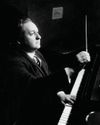
Look back in anguish
Despite Korngold's denials, there is much to suggest that his Symphony in F sharp is a grim depiction of the dark days of Nazism, argues Jessica Duchen

Come again?
If something is worth hearing once it's worth hearing again, explains Rebecca Franks, who charts a history of the use of echoes in music

THE BBC MUSIC MAGAZINE INTERVIEW
Music by women and composers of colour is not a separate set of pieces from the ones we know
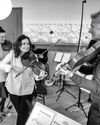
A brilliant melting pot of discoverable works
Erik Levi enjoys Patricia Kopatchinskaja and friends' eloquent performances of lesser-known works by exiled composers

Pierre Boulez
Tom Stewart celebrates a composer, conductor and musical iconoclast for whom breaking from tradition was not an option but a must
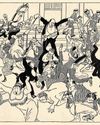
Vienna's cacophonous concert ends to the sound of slapping
‘Fighting at a Schoenberg concert.
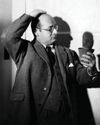
Molto humoroso
Cartoonist and broadcaster Gerard Hoffnung lampooned the world of classical music with splendid affection and wit, writes Andrew Green

There and back again
With retrospectives on album and in concert this month, Oscar-winning composer Howard Shore reflects on his years in Middle-earth and tells Michael Beek why he has a lot to thank the LPO for...
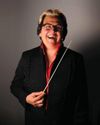
THE MAGNIFICENT SEVEN Pick a theme... and name your seven favourite examples
Composer-conductor Odaline de la Martinez prizes tempo, swing and bounce in her top rhythmic works
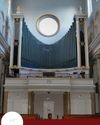
Crystal clear with plenty of punch
The great is, they say, the enemy of the good, and that is certainly the case with David Sanger’s interpretation of Vierne’s Organ Symphony No. 1, which stands head and shoulders above a strong field of alternative versions.
